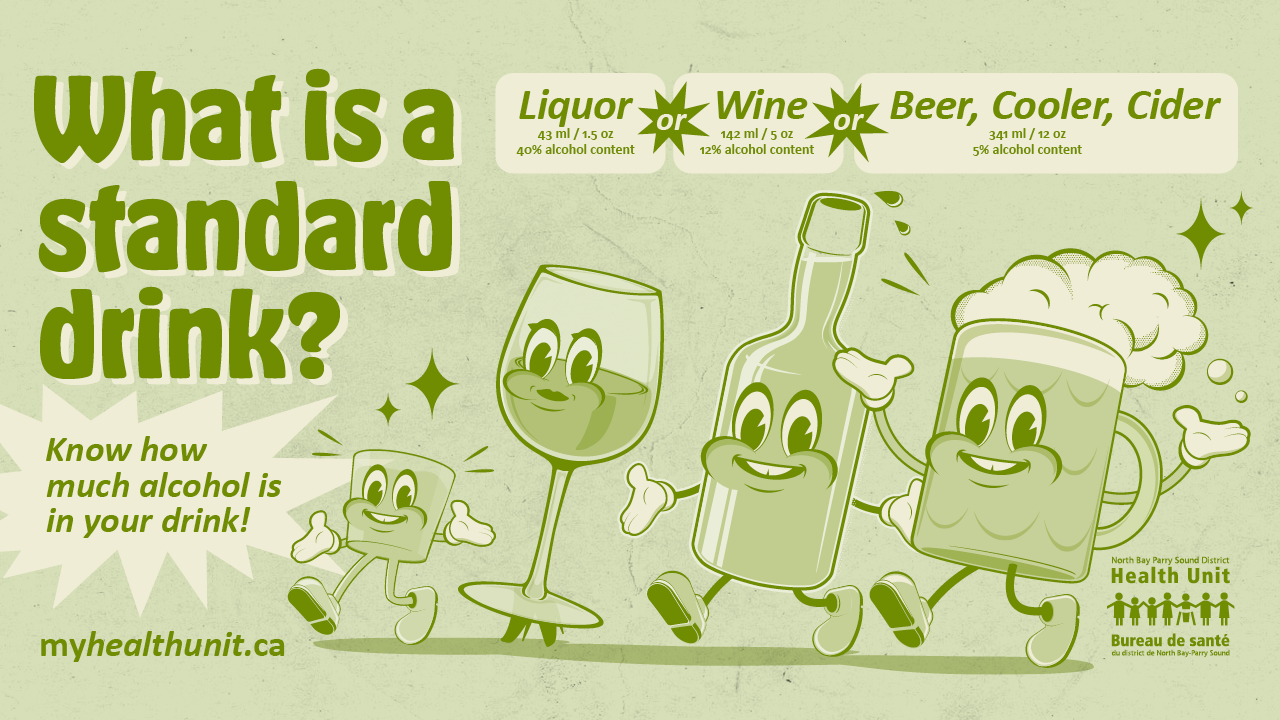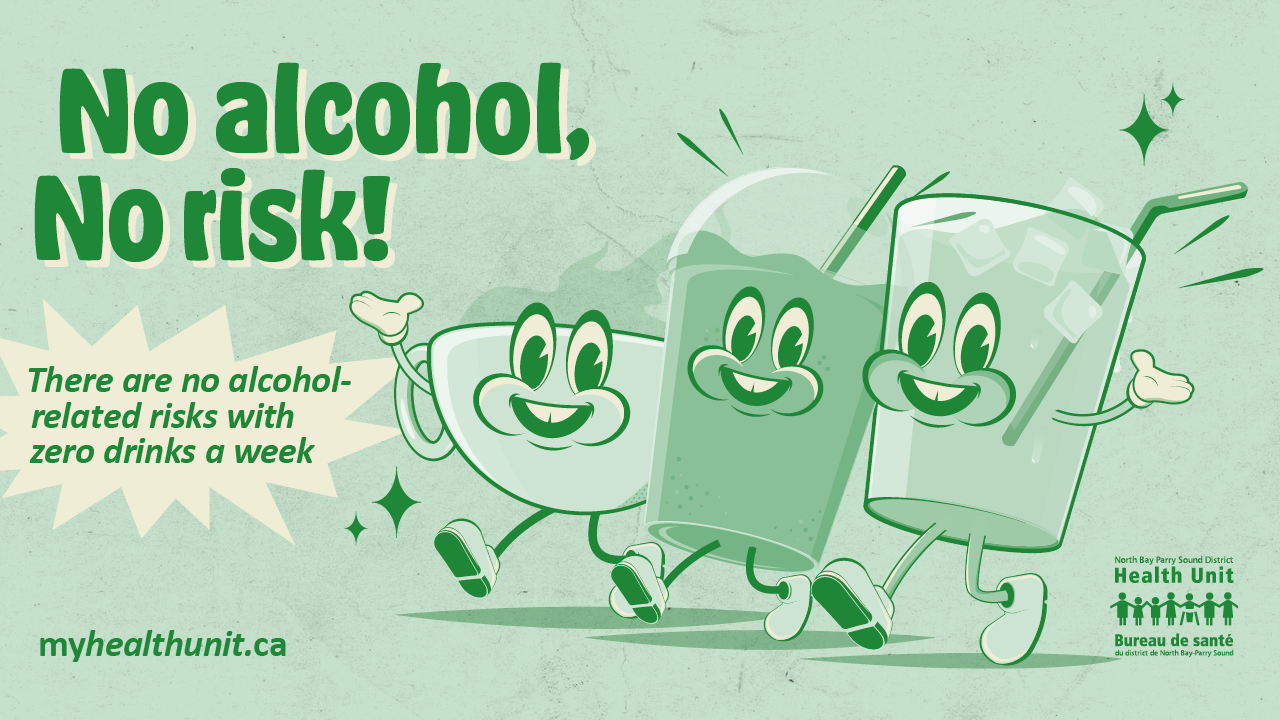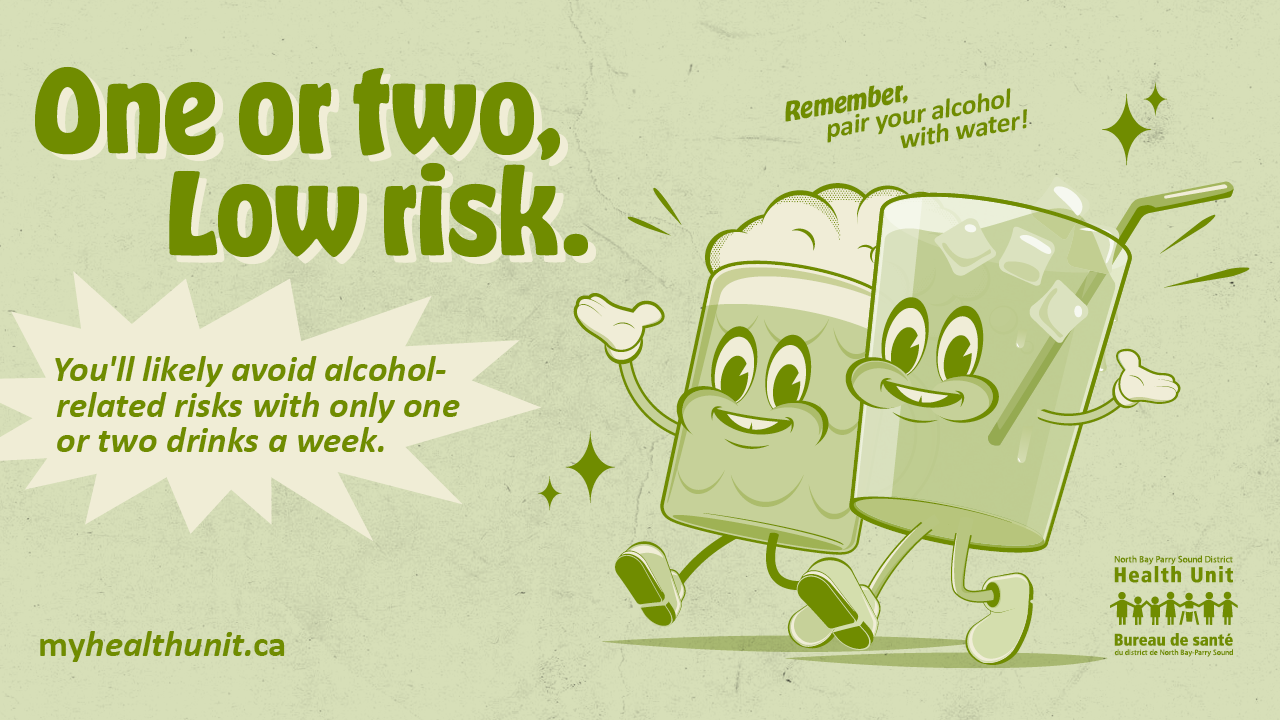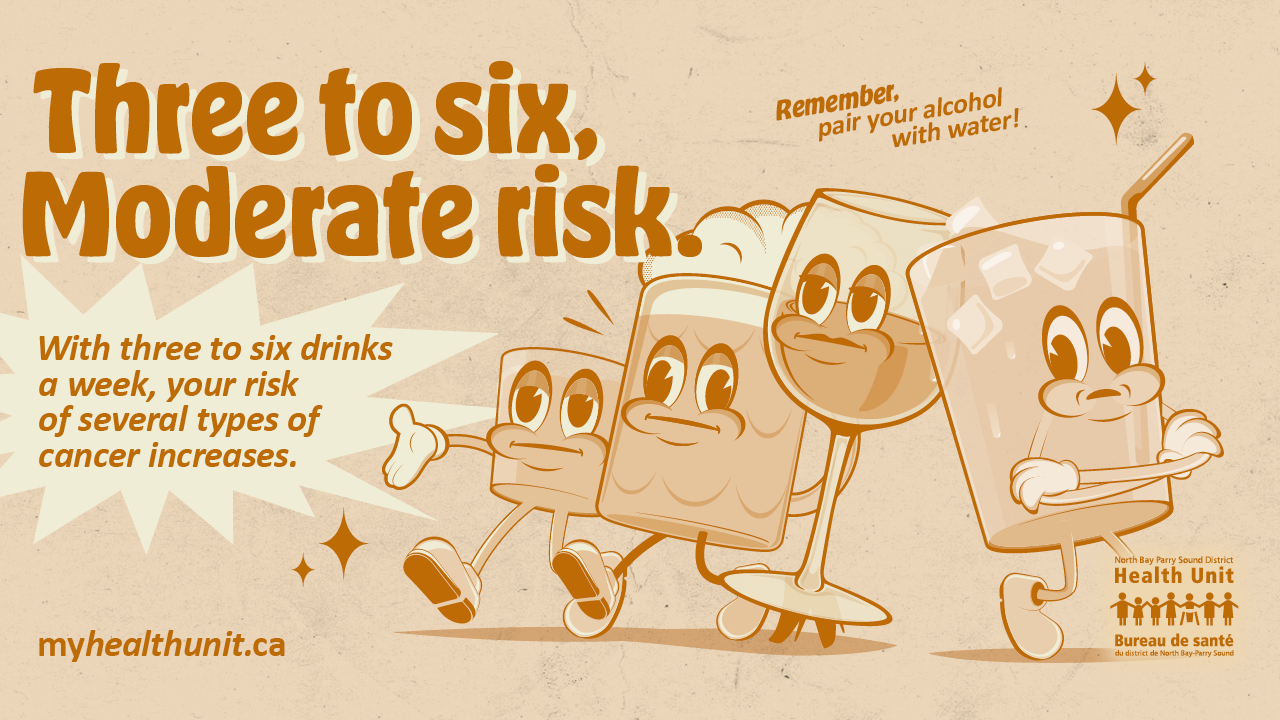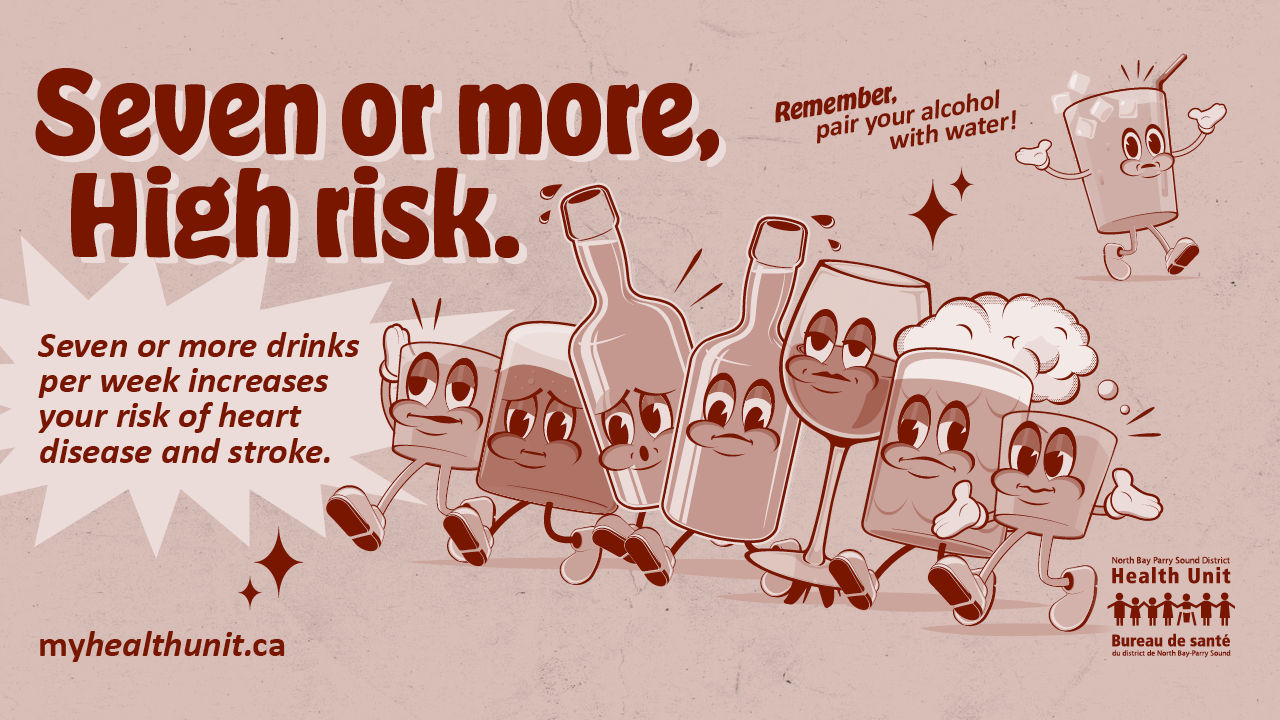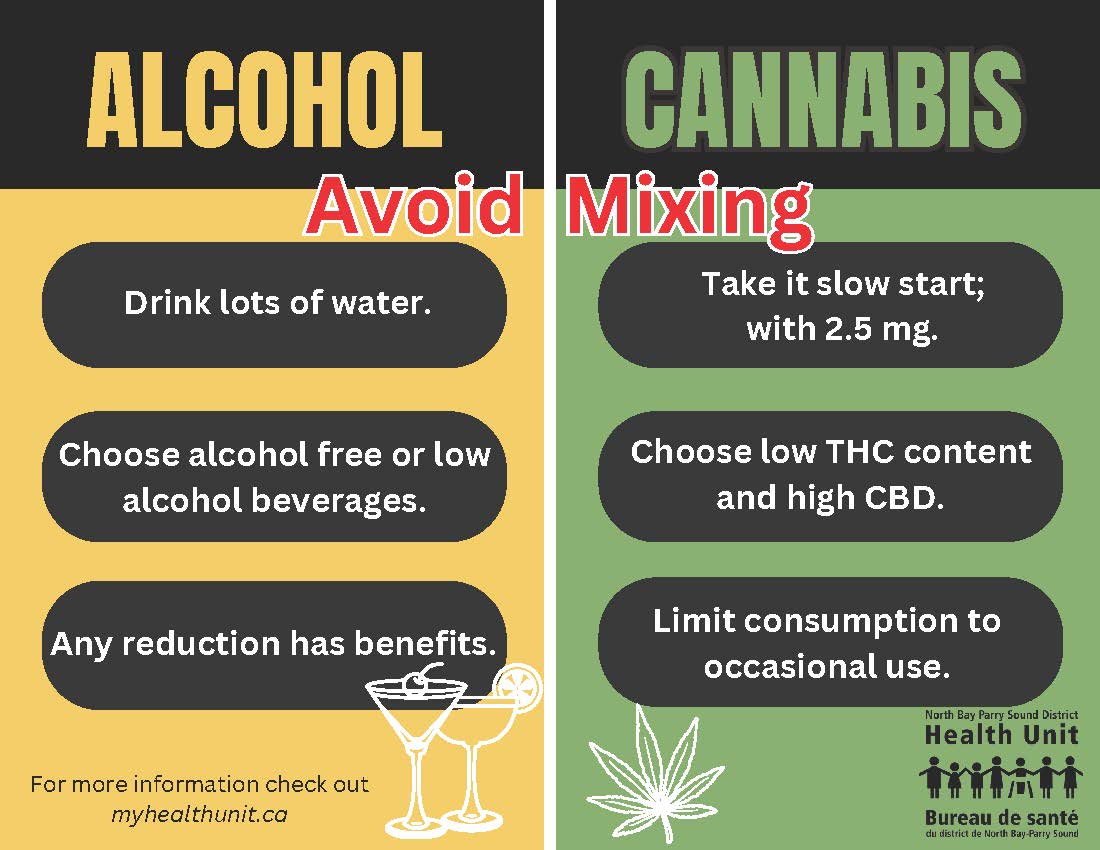Alcohol is a depressant drug that can slow down the parts of the brain that affect thinking, behaviour, breathing, and heart rate.
Drinking alcohol is a personal choice; however, it’s important to know the risks.
Drinking less benefits you and others. No matter how much you typically drink, less alcohol is better for your health.
- Beer: 341 ml (12 oz) at 5% alcohol
- Cooler, cider or ready-to-drink: 341 ml (12 oz) at 5% alcohol
- Wine: 142 ml (5 oz) at 12% alcohol
- Spirits (whisky, vodka, gin, etc.): 43 ml (1.5 oz) at 40% alcohol
Convert your drinks into standard drink sizes by using the calculator provided by the University of Victoria, Canadian Institute for Substance Use Research.
Find out what kind of health impact and the cost associated with the amount of standard drinks you have per week with this calculator provided by University of Victoria, Canadian Institute for Substance Use Research.
Binge Drinking
Binge drinking is having a lot of drinks on one occasion. For example, on a night out, at a party, in a drinking game or contest.
Young people who binge drink are especially at risk. This is because they are less familiar with the effects of alcohol and are more likely to do something impulsive or dangerous. Binge drinking is also more common among young people.
For more information check out Binge drinking.
- 0 drinks per week is no risk. Not drinking has benefits, such as better health and better sleep.
- 1 to 2 standard drinks per week is low risk. You will likely avoid alcohol-related consequences for yourself and others.
- 3 to 6 standard drinks per week is moderate risk. Your risk of developing several different types of cancers increases.
- 7 or more standard drinks per week is high risk. Your risk of heart disease or stroke increases. Each additional drink radically increases the risk of alcohol-related consequences.
- Set a weekly drinking target.
- Stick to the limits you’ve set for yourself.
- Drink slowly.
- Drink lots of water.
- For every drink of alcohol, have one non-alcoholic drink.
- Choose alcohol-free or low-alcohol beverages.
- Eat before and while you’re drinking.
- Have alcohol-free weeks or do alcohol-free activities.
For individuals who are pregnant, trying to get pregnant, or are breastfeeding, the safest choice is to drink no alcohol at all.
The more alcohol you drink, the higher your risk for health and social harms. These include:
Cancers |
||||
|
Alcohol is a carcinogen that can cause at least seven types of cancer including breast, colon, rectum, mouth and throat, liver, esophagus, and larynx. According to the Canadian Cancer Society, drinking less alcohol is among the top 10 behaviours to reduce cancer risk. For more information check out Alcohol and Cancer |
||||
Heart Disease |
||||
|
Alcohol is a risk factor for most other types of cardiovascular disease, including hypertension, heart failure, high blood pressure, atrial fibrillation, and hemorrhagic stroke. For more information check out Alcohol and Heart Disease |
||||
Liver Disease |
||||
|
Liver disease is on the rise in Canada, and alcohol is one of its main causes. Alcohol consumption has been shown to increase the rate of liver damage. For more information check out Alcohol and Liver Disease |
||||
Injuries and Violence |
||||
|
Alcohol is frequently associated with violent and aggressive behaviour, including intimate partner violence, male-to-female sexual violence, and aggression and violence between adults. Impaired driving means operating a vehicle while your ability to do so has been compromised to any degree by consuming alcohol and or drugs. Thirty four percent of 3,400people in Canada were hospitalized and 847 died due to motor vehicle collisions attributed to alcohol in 2020. Check out Alcohol and driving and Alcohol and Intimate Partner Violence for more information. Check out Canada’s Guidance on Alcohol and Health to learn more to support you in making informed decisions about your drinking and your health. |
||||
Where can I go for help? |
||||
|
If you are worried about yourself or someone you know, there are places that can help. Adult Services:Child and Youth Services:
|
||||
Resources |
||||
|
Below is a list of materials from our campaign that are available for download. They can also be requested by emailing healthy.living@healthunit.ca.
|

Being open and talking often about alcohol will help kids make informed decisions.

Reduce the risks to your baby and family with these safer use tips for pregnant individuals and new parents.

Learn more about the effects of cannabis, lower risk guidelines and where to turn for help.
.jpg)


